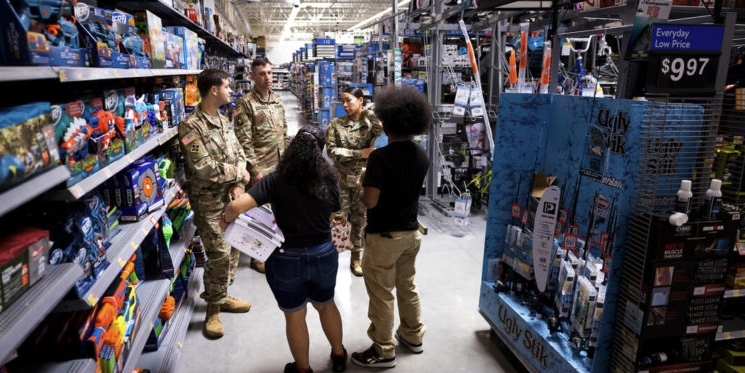
FOUNTAIN, COLORADO — The local Army recruiting station was empty. The normally reliable recruiting grounds at the nearby Walmart were a bust. With the Army still thousands of soldiers short of its recruiting goal, the station commander, Sgt. First Class James Pulliam, dressed head to toe in camouflage, scanned a strip-mall parking lot for targets.
He spotted a young woman getting out of a car, and put on his best salesman smile.
Hey, how’d you know I was going to be here today!” the sergeant said with an affable Carolina drawl, as if greeting an old friend. “I’m going to help put you in the Army!”
These are tough times for military recruiting. Almost across the board, the armed forces are experiencing large shortfalls in enlistments this year — a deficit of thousands of entry-level troops that is on pace to be worse than any since just after the Vietnam War. It threatens to throw a wrench into the military’s machinery, leaving critical jobs unfilled and some platoons with too few people […]











My son just joined the Marines (literally last week), and I was a bit shocked by how difficult it is to pass the medical review (including they scrutinize your digital medical and prescription history). He’s very athletic and even he had to get a medical waiver because his ankles were “tight” in examinations (no medical problem, and simply he needs to stretch more). The recruiter expressed frustration with increasingly unwarranted and somewhat overzealous disqualifications of healthy and promising candidates – apparently finding healthy/willing candidates is only half of the battle, and then qualifying them medically is another issue.
As an aside, I’ve been thoroughly impressed with how supportive the Marines have been since my son joined the Delayed Entry Program, and pleasantly surprised by their mentorship on education, career, a healthy lifestyle, respect, etc… It’s been a positive experience for my son. Please trust I have my doubts and concerns (as ‘Dad’) about the military, but it seems that perhaps the recruiting challenges may be encouraging some positive change as well – including healthier support of the recruit as a person instead of just a ‘quota’.
I would never join the military now, but was forced to during the Vietnam period because my parents kicked me out of the house when I dropped out of college after my first year. I joined so I could choose where I would serve and I chose Germany because O would not ever want to have to kill anyone; nor would I want to be killed in Vietnam like my best friend did, two weeks before he was supposed to come home.
P.S.: that O was supposed to be an I would not ever want to kill anyone.